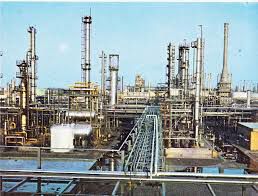1954: THE BRITISH CONSERVATIVE GOVERNMENT AND THE ENDING OF THE NATIONALISATION OF THE ANGLO-IRANIAN OIL COMPANY’S CRISIS.
The Anglo-Iranian Oil Company’s notice continued to point out that it would take ‘all such action as may be necessary to protect its rights in any country against any concern or individuals who entered into transactions with the Persian Government.1
Consequently, there was not much that private companies could do to take advantage of the ‘free’ flow of oil from Iran. Despite all these, the National Iranian Oil Company, on 18thFebruary 1952, met Count Ettore della zonca, President of the Ente Petrolifero Italian-Medio-Oriente, a newly formed company, and signed a contract for the supply of 400,000 tons of oil in 1952 and 2,000,000 tons per annum from then onwards for ten years.
In the following six months, della zonca and Hans Prager, his co-director, made several visits to Iran. In June 1952, the news of a 632 ton tanker, Rose Mary, taking cargo of 1,000 tons of oil from Iran on behalf of the Italian firm for a Swiss company, Bubenberg, leaked out.
The owners of the tanker, the Compania de Navigacion Teresita firm, controlled by an Italian with the name of Rizzi, were at once approached by the Anglo-Iranian Oil Company, which persuaded them to transfer to the Anglo-Iranian Oil Company the charter held by the Bubenberg Company. As the tanker was navigating the south coast of Arabia, Royal Air Force planes circled round the vessel, until eventually they managed to divert the tanker to Aden, where it was under British jurisdiction. On 10th December 1952, ultimately the case came up for hearing before the Aden Supreme Court. Sir Hartley Shawcross, the former Attorney-General, had been briefed by the Anglo-Iranian Oil Company to conduct the case. On 9th January 1953, the Court ruled that the oil belonged to the Anglo-Iranian Oil Company and was to be surrendered immediately.
Apart from the oil blockade, and direct action against ‘freelance’ ventures, of which an example has just been given, the British Government as early as June 1951 started to impose economic sanctions on Iran.2
The export of sugar , steel, iron, non-ferrous metals, alloys, railway trucks, and materials became forbidden:
We should prevent the export to Persia of sugar, and other commodities which clearly result in a direct or indirect loss of dollars to the United Kingdom.3
Any vessel which carried such goods to Iranian ports would be diverted, by radio, even if contracts had already been made, without taking any notice of Iranian officials’ complaints.
On the other hand, at the same period when Britain started to impose economic sanctions on Iran in 1951, the oil cartel was drawing up plans to isolate Iranian oil. This was while negotiations, which the studies in the previous chapters showed, between Britain, Iran and the United States were going on.
In the United Kingdom, at the request of the Ministry of Fuel and Power, an Oil Supply Advisory Committee in June 1951 was formed. Sir William Fraser of the Anglo-Iranian Oil Company became its chairman. Other members were representatives of Trinidad Leaseholds and Shell Group.
Similar action took place in the United States. The Foreign Petroleum Supply Committee was formed in June 1951. The Chairman of this committee was the Secretary of the Interior and Petroleum Administrator for Defence, Oscar L. Chapman, and worked in close co-operation with its British Counterpart. This organisation comprised 19 companies, five of which were the five major cartel firms, such as Texas and Gulf, New Jersey Standard, California Standard, Socony-Vacuum and a number of their associates and subsidiaries. The Sinclair Oil Company, and the new group in the Middle East, the American Independent Oil Company, Pacific Western Oil Corporation, and Superior Oil Company.
- Ibid.
- Just before the UK was considering taking military action, which was discussed in Chapter Three.
PRO, London, T236/3664, Treasury Records, Cabinet Persia (Official) Committee, Exports to Persia, Note by the Board of Trade, Secret, 21st, July 1952, p. 1.



